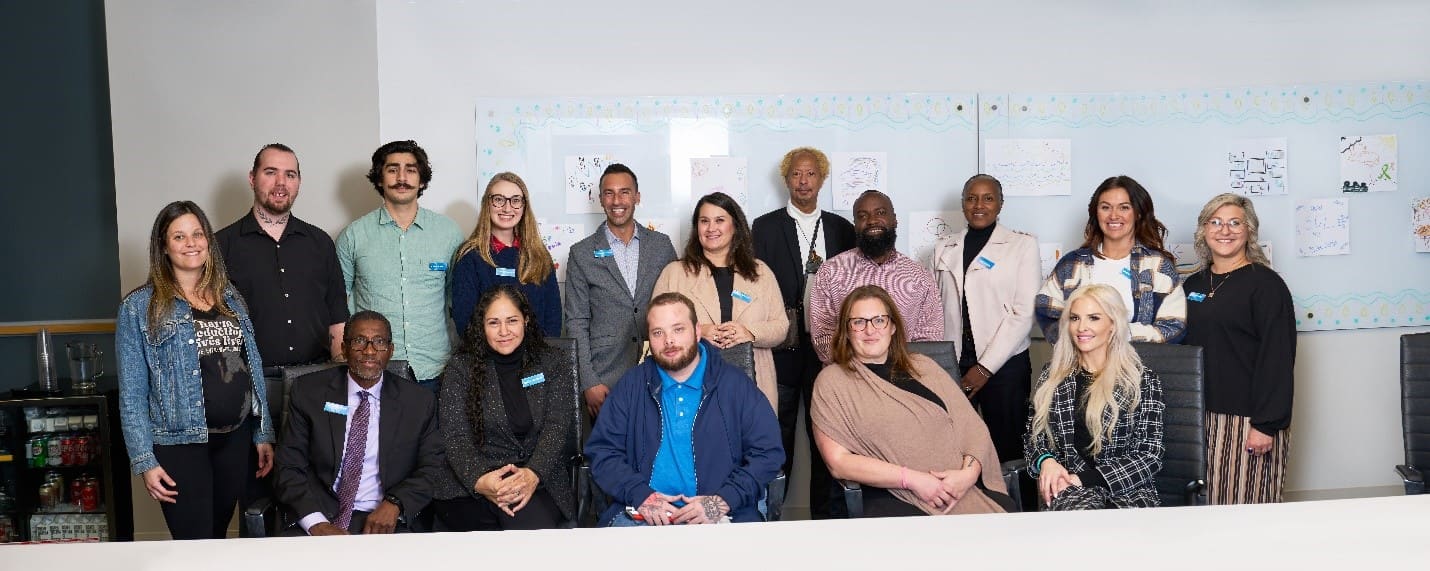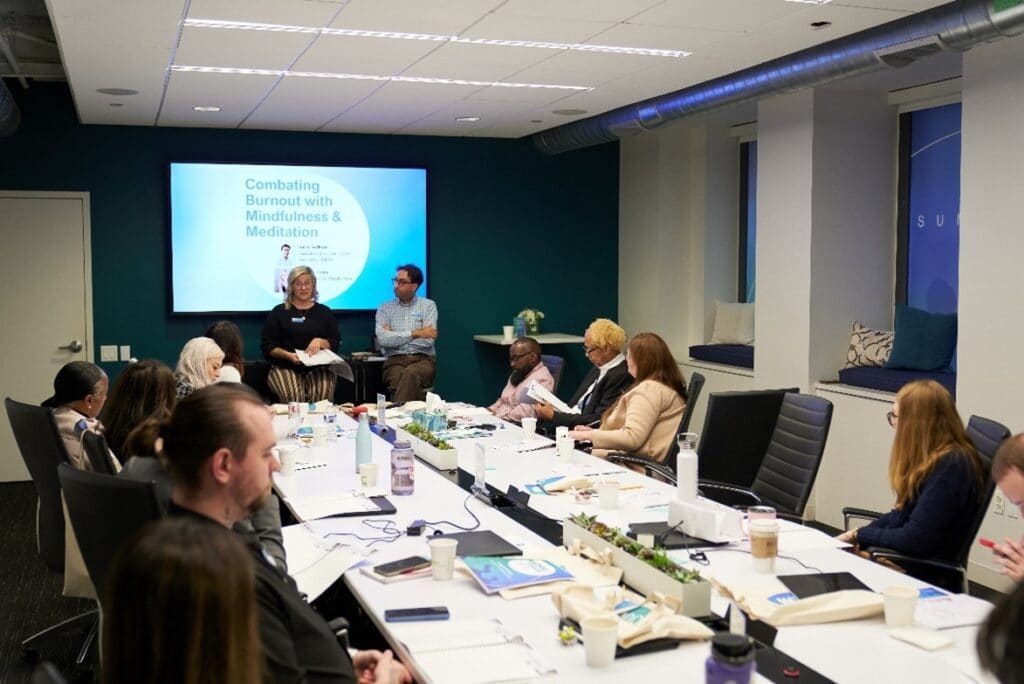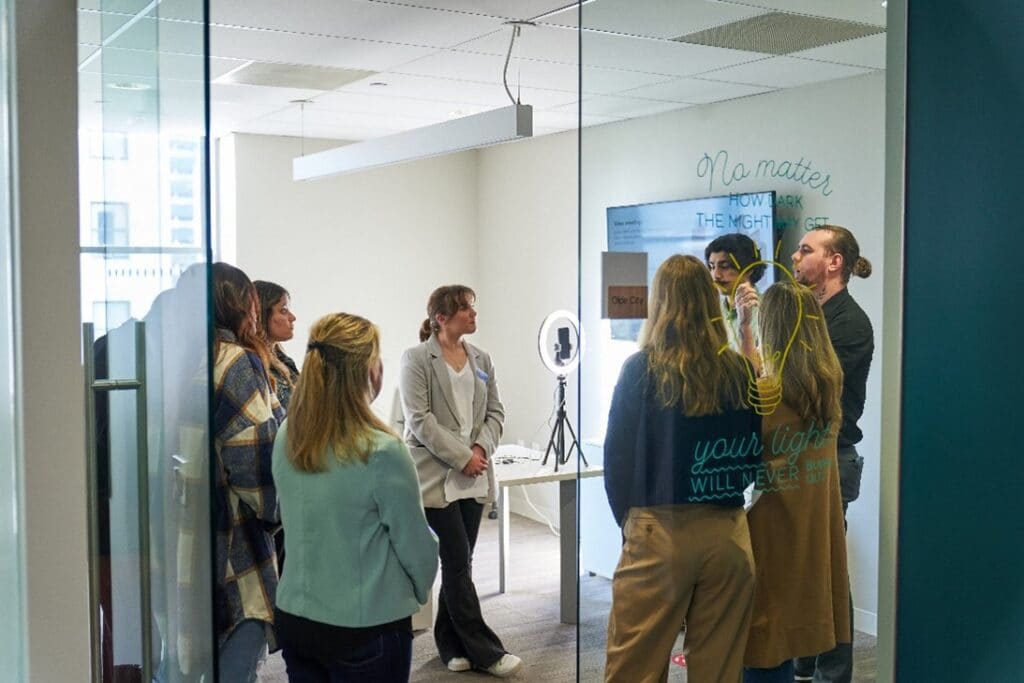Bringing Together Online Advocates at the Inaugural “More than OUD” 2023 Summit

Being an advocate for the substance use disorder community can take many forms – from those who reach the masses by sharing their incredible stories on social media, to those who pound the pavement hand-delivering toiletries and harm reduction tools or create welcoming spaces for people to go and reconnect with humanity, to all those behind the scenes offering support and encouragement. During the 2023 More than OUD Summit, I had the chance to listen to and learn from 15 remarkable advocates, both speakers and attendees, who each shared their unique – yet shared – experiences as leaders within the recovery community. It was eye-opening and deeply encouraging to hear their stories of resiliency and commitment to change the course of the opioid epidemic. Every voice, every boot out there on the ground in our communities, every compassionate word and real-life example matters and can inspire another that recovery is possible.
Here are some of the key insights that will stick with me as we move forward in our journey to break stigma once and for all, increase education about the disease and help people with OUD overcome barriers to recovery.
Advocacy is hard work. In theory this is a no brainer. After all, we’re tackling one of the worst public health challenges in our time. And for those in recovery, every time a personal experience is shared, it can feel like going back in time. Battling advocacy burnout and prioritizing self-care is absolutely critical, and there are lots of free tools and resources to stay on track. During the summit we had the opportunity to practice meditation and heard firsthand how it can promote inward healing, which is a necessary step to also mend external relationships. We also heard about innovative nonprofit programs that are bringing healing yoga to black and brown communities, older populations and those living with addiction. Of course, we know there is much more to do in terms of the diversity and accessibility of advocacy resources, and that’s a cause I hope to personally champion, with the help of other advocacy leaders.

Attendees participating in “Combatting Burnout with Mindfulness & Meditation” session with Stacey Foley and Gabe Nathan.
Storytelling on social media changes lives – and is more complex than I ever knew. One theme of the summit was the universality of storytelling and, as stated by one of the attendees, “We recover out loud, so people don’t die quietly.” But during the summit, we also discussed the societal and psychological implications of sharing substance use disorder and recovery stories, while learning how we can move to a safer, more empowering narrative that respects, uplifts and truly represents the individuals these stories are about. Social media gives us limitless connections and the ability to reach new people and inspire others in their advocacy and/or recovery journeys. It certainly has inspired me to be more active on my social platforms to raise awareness and offer support for everyone impacted by OUD. I also learned that social media requires a level of mental toughness to deal with some of the negativity that may be expressed on social platforms, as we discussed ways to navigate the online world with resilience and grace, while turning negative comments into an opportunity for growth and positivity. Social media is a powerful tool that we should use to uplift people in recovery and the people and organizations advocating for them.
Nothing compares to the power of personal connection. You cannot overstate how powerful it is for a person struggling with substance use disorder to meet a person in recovery who has lived through similar experiences and feelings of shame or hopelessness, and who now represents a shining real-life example of what is possible. That’s why many of the advocates in the room work diligently to get out into the community where they can connect face-to-face with people struggling with addiction, whether that be in prisons, on the streets, on college campuses or in recovery homes and centers. Meeting people where they are in their journey and being there for them when they need you – no matter the time – is so important. These firsthand interactions cannot be replaced by stories shared on social media or other virtual platforms. As put so eloquently by a local advocate, “There’s hope in this room; reach back and help someone else.” The power of personal connection is key, and I am grateful to each and every advocate who shared their sincere thoughts and lived experiences with me.
You cannot overstate how powerful it is for a person struggling with substance use disorder to meet a person in recovery who has lived through similar experiences and feelings of shame or hopelessness, and who now represents a shining real-life example of what is possible.

Attendees discussing the various tools and strategies they use on social media
I’m so proud to be part of this Braeburn team, but we know we can not do this work alone. I look forward to continuing to learn and grow from the individuals who joined us at our first Summit – and to meeting and hearing the stories of many more OUD and addiction advocates as we continue our charge in the months and years ahead.